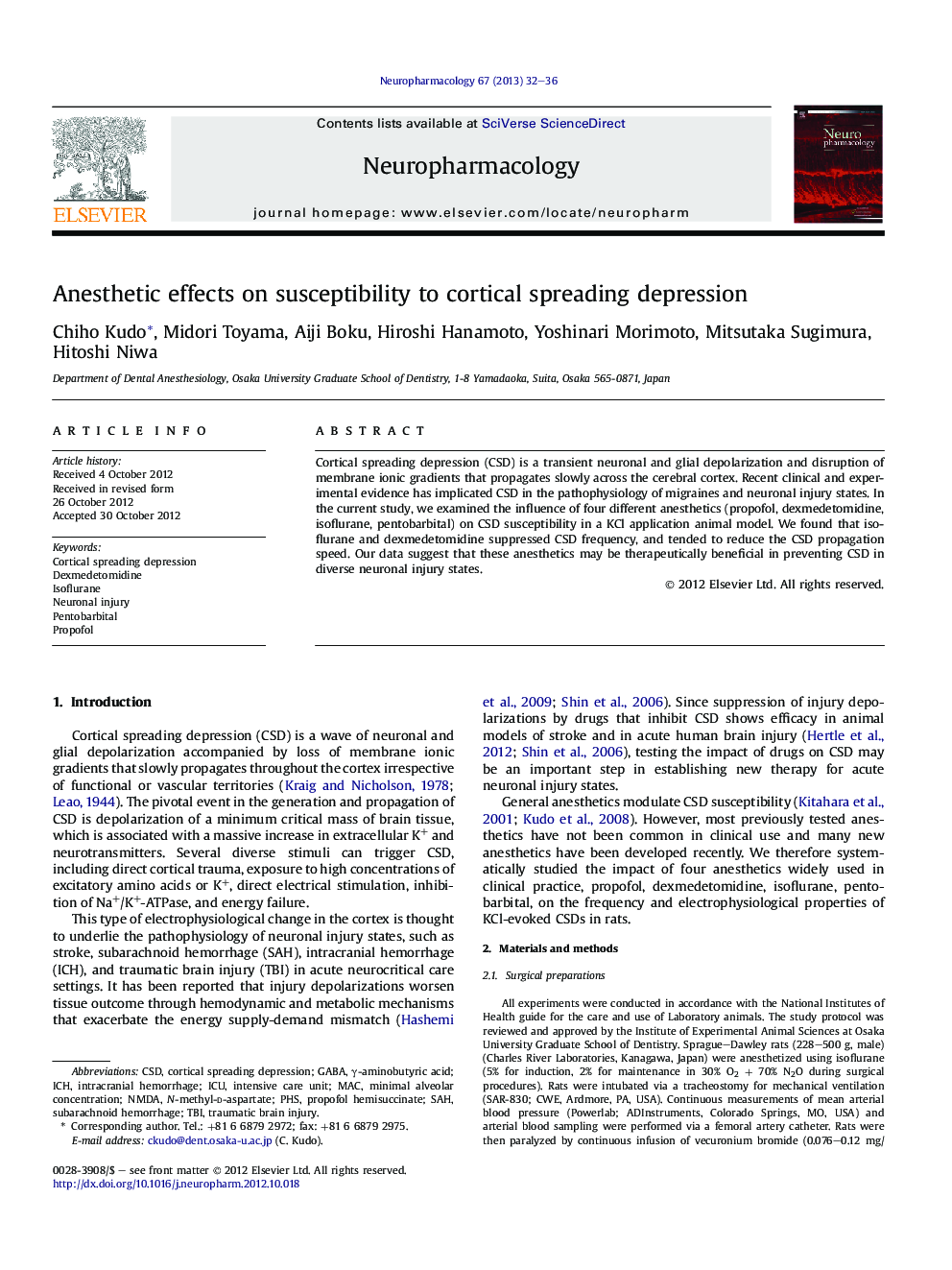| Article ID | Journal | Published Year | Pages | File Type |
|---|---|---|---|---|
| 5815057 | Neuropharmacology | 2013 | 5 Pages |
Cortical spreading depression (CSD) is a transient neuronal and glial depolarization and disruption of membrane ionic gradients that propagates slowly across the cerebral cortex. Recent clinical and experimental evidence has implicated CSD in the pathophysiology of migraines and neuronal injury states. In the current study, we examined the influence of four different anesthetics (propofol, dexmedetomidine, isoflurane, pentobarbital) on CSD susceptibility in a KCl application animal model. We found that isoflurane and dexmedetomidine suppressed CSD frequency, and tended to reduce the CSD propagation speed. Our data suggest that these anesthetics may be therapeutically beneficial in preventing CSD in diverse neuronal injury states.
⺠We examined effects of anesthetics on Cortical Spreading Depression (CSD). ⺠CSD is thought to underlie the pathophysiology of acute neuronal injury states. ⺠In this study, dexmedetomidine and isoflurane suppressed the frequency of CSD. ⺠Propofol and pentobarbital did not suppress the frequency of CSD. ⺠Data suggest that the choice of anesthetics influence acute neuronal injury states.
